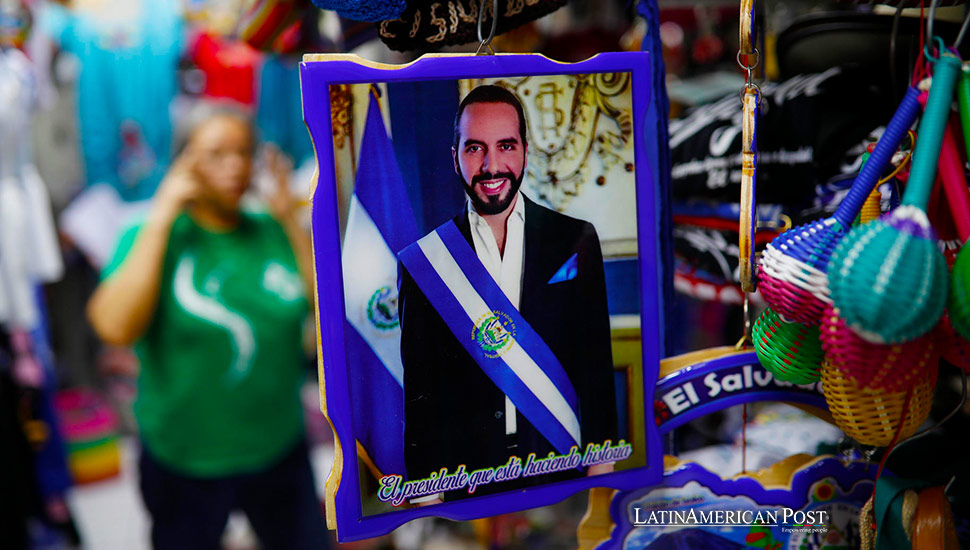El Salvador’s Bukele Begins Controversial Second Term Amid High Popularity

Despite constitutional prohibitions, Nayib Bukele will start his second consecutive term as El Salvador’s president on June 1. He is backed by strong popular support and a Congress that has granted itself powers to expedite constitutional reforms.
Nayib Bukele will begin his second consecutive term as President of El Salvador on June 1, 2024. This milestone, achieved despite constitutional prohibitions and amid allegations of election irregularities, marks a significant moment in the country’s political landscape. A broad base of popular support supports Bukele’s re-election but has also raised concerns among analysts about consolidating an authoritarian model in El Salvador.
Bukele’s return to power has been facilitated by the Constitutional Chamber’s judges, appointed by his party, Nuevas Ideas (NI), who altered their interpretation to allow his consecutive re-election. This move has been controversial, with critics arguing that it undermines the democratic principles enshrined in the Constitution.
Óscar Picardo, Director of the Center for Citizen Studies at Francisco Gavidia University, suggests Bukele’s new term might further entrench a “quite authoritarian model” with limited democratic spaces. “I believe the regime will continue to consolidate, characterized by absolute control and widespread fear, especially among business and academic sectors,” Picardo said in an interview with EFE. He added that this atmosphere of fear and the suppression of dissent is detrimental to democracy.
Historical Parallels and Contemporary Governance
Bukele’s governance style has been compared to the authoritarian regimes of Latin America’s past. His centralization of power, suppression of opposition, and use of populist rhetoric echo the tactics of leaders from the 1970s and 1980s who ruled through similar means.
However, Bukele’s popularity remains high, primarily due to his perceived success in improving security. Under his administration, significant efforts have been made to tackle gang violence, a pervasive issue that had previously paralyzed much of the country. The public has widely appreciated these measures, even as they have led to numerous human rights violations.
Constitutional Reforms and Political Uncertainty
The Legislative Assembly, dominated by Bukele’s allies, has recently granted itself the power to expedite constitutional reforms. Legal experts have raised alarms, arguing that this violates the Constitution’s fundamental principles. Picardo expressed concern over the potential implications of these reforms, including the possibility of indefinite re-election or other unforeseen changes.
The uncertainty surrounding these constitutional amendments adds to El Salvador’s already volatile political environment. As Bukele begins his new term, the country faces a critical juncture with significant implications for its democratic institutions and governance.
Despite Bukele’s strong approval ratings, economic challenges loom large. According to Picardo, the financial situation could become a significant vulnerability for Bukele’s administration. “The economic factor is crucial today in determining the future,” he said. “If the government fails to address this, it risks losing popular support.”
The administration’s economic policies have been scrutinized, particularly regarding foreign investment and debt management—the highly controversial use of Bitcoin as a legal tender has faced criticism and skepticism domestically and internationally. Furthermore, allegations of corruption and mismanagement have raised concerns about the country’s economic stability.
Popularity and Public Opinion
Bukele’s popularity has remained remarkably high. In March of the previous year, a public opinion poll conducted by the Social Research Unit of the local newspaper La Prensa Gráfica (LPG) showed that 91% of Salvadorans approved of his performance. This widespread approval persists despite criticisms of his actions against democratic governance, such as suppressing information and pursuing immediate re-election.
LPG’s analysis noted that Bukele’s image had not been significantly damaged by these controversial actions, the adoption of unpopular measures like Bitcoin, or the engagement of two of his officials with gang leaders. This suggests a complex relationship between the public’s perception of Bukele’s administration and their approval of his leadership.
Bukele’s political trajectory can be seen within the broader context of Latin American governance, where populism and strongman tactics have been a recurring theme. Leaders across the region have often employed similar strategies to consolidate power, presenting themselves as champions of the people while undermining democratic institutions.
Latin America’s history is replete with examples of such governance, from the military dictatorships of the 20th century to the populist regimes of recent decades. Bukele’s approach echoes these patterns, raising questions about the resilience of democratic norms and the future of political governance in the region.
Security Achievements vs. Economic Shortcomings
One of Bukele’s significant achievements has been reducing gang-related violence. His administration’s aggressive stance against gangs has led to a notable decrease in crime rates, providing a sense of security that many Salvadorans had not experienced in years. This achievement has been a cornerstone of his popularity.
However, critics argue that this focus on security has come at the expense of other critical areas, such as education and economic development. Picardo highlighted the need for the administration to balance its achievements in security with efforts to ensure financial stability and improve educational outcomes. “The government must prioritize economic stability and job creation to ensure a balanced approach to governance,” he noted.
As Bukele embarks on his new term, El Salvador’s future hangs in a delicate balance. The administration faces the dual challenge of maintaining its security achievements while addressing the economic issues that could undermine its popular support. The potential for further constitutional changes and the centralization of power pose additional risks to the country’s democratic framework.
The coming years will be critical in determining whether Bukele can successfully navigate these challenges. His ability to balance populist measures with sustainable economic policies and democratic governance will be key to his administration’s long-term success and stability.
A Critical Juncture for El Salvador
Nayib Bukele’s second term as President of El Salvador represents a critical moment for the country. With strong popular support and significant achievements in security, Bukele stands at the forefront of Salvadoran politics. However, the challenges ahead, particularly regarding economic stability and democratic governance, will test his leadership and the resilience of El Salvador’s political institutions.
Also read: El Salvador Extends Exception Regime, Ignites Human Rights Debate
The broader context of Latin American history and governance underscores the importance of this moment. As Bukele continues to shape the future of El Salvador, the implications of his administration’s actions will resonate beyond the country’s borders, influencing the broader regional discourse on populism, democracy, and governance.




